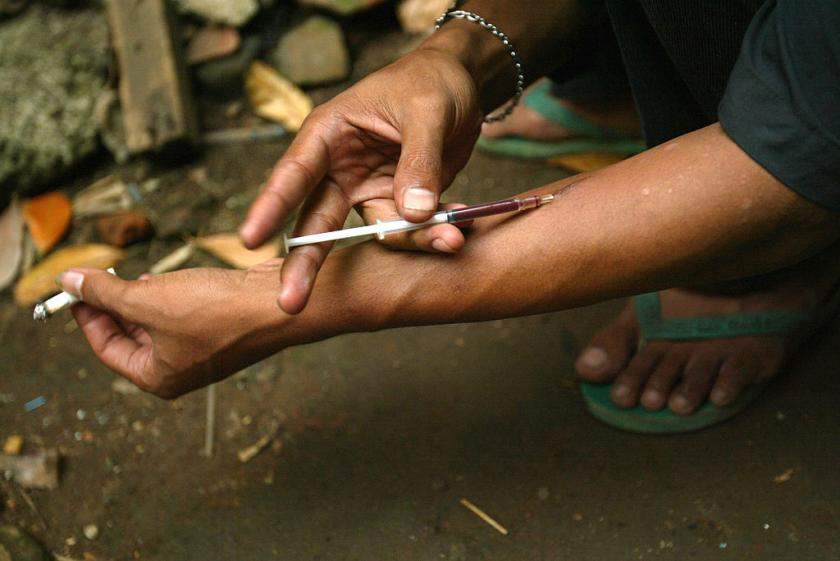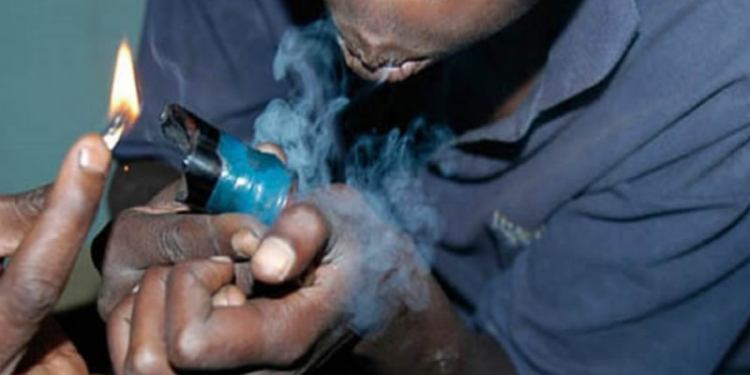Substance abuse is becoming increasingly prevalent among the youth of this generation. Many of these drugs are illegal in most countries, yet some of these drugs are easily accessible. Nigeria has a country that doesn’t have strict laws to combat the illegal use and abuse of these drugs and this has served as a major contributing factor to the abuse of the drugs among its youths.
People from all walks of life take illicit drugs, and the type of drug they use can depend on their socioeconomic status including things like their cultural background, where they live and what their income is.
A study by a Nigerian Bureau of Statistics (NBS) and the Centre for Research and Information on Substance Abuse with support from United Nations Office for Drug and Crime (UNODC) estimates that over 15% of the Nigerian populace are involved in the use of psychoactive substances – hard drugs & abused drugs to calm the nerves – this is over 14.3 million people, which is indeed a menace to the state of the country. The ages of those addicted are between 15 and 64 years who use drugs like cannabis, amphetamines, opioids, and cocaine. It showed the highest levels of drug use was recorded among people aged between 25 and 39, with cannabis being the most widely used drug. Sedatives, heroin, cocaine and the non-medical use of prescription opioids were also noted. The survey excluded the use of tobacco and alcohol.
The NBS report said, “The extent of the problem is such that it cannot be addressed alone by any single entity within the government or by the government alone.” So, it is a problem that demands the collaboration of all segments of society, especially the family, where parents and guardians should pay more attention to what their children and wards are doing. Religious groups also have a big role to play in keeping the youth away from drugs, especially through enlightenment.
Drug Abuse vs Drug Addiction
Despite their near resemblance, there are important differences between “substance abuse” and “addiction.” Drug abuse occurs when any psychoactive substance, including alcohol, illegal narcotics, and prescription medications, is used improperly to get high or hurt oneself. Since drug abusers exhibit dramatically changed thinking, behavior, and bodily functioning, it is also known as substance use disorder (SUD).
Drug addiction is a severe form of drug abuse.
Drug addiction is a condition in which a person is unable to stop using a substance even when it is harmful to their health. The distinction between the two disorders lies in how much control the user can exercise over themselves. Since a person who abuses drugs still has control over their life, they don’t experience major disruption in their life. In contrast, when you’re addicted to drugs, you can’t resist the urge to use them, no matter how much harm the drugs may cause.
A Widespread Health Issue
The issue of drug abuse isn’t just limited to Nigeria, it is a worldwide problem. In 2018, more than 20 million people suffered from a substance use disorder (alcohol or drugs) within the past year. One in 13 people, 12-years-old and older, have experienced an addiction issue in the past 5 years. The inflow of opioids isn’t limited to Nigerian alone either as UNODC says west, north and central Africa jointly account for 87% of all pharmaceutical opiates seized globally.
Overdoses from illicit and legal drugs exceeded 70,000 in 2017 – more than double the drug-related deaths in 2007. Drug overdoses are responsible for the third most preventable deaths in most parts of the world. Every year, addiction to alcohol, tobacco, illicit drugs, and prescription opioids costs the U.S. economy upwards of $740 billion in treatment costs, lost work, and the effects of crime.
Risks associated with using drugs include physical and mental health problems, personal relationship issues, work and financial problems, drug addiction and drug overdose.
Drug Abuse across Nigeria’s Geo-political zones
According to information provided by the organization, 34,499 drug-related arrests were made between 2012 and 2015 in all 36 federation states and the Federal Capital Territory, or FCT.
In accordance with the report, Kano State in the North West geo-political zone had 8,939 cases of drug-related offenses during the review period, ranking it first among the states of the federation and first among the country’s six geopolitical zones. With a total of 2,173 arrests, Katsina, Plateau, and Ekiti States came in second, third, and fourth, respectively.
With 6,999 arrests, the South West ranks second highest among geopolitical zones in an analysis of the data, trailing only the North West. The South South took fourth position with 5,545 cases, followed by North Central in third with 5,574 cases. With 4,230 and 3,212 arrests each, the South East and North East geopolitical zones were last.
Given that the problem hasn’t been adequately addressed and tacked, the statistics with this 2012–2015 report would have undoubtedly increased.

Why do Youths get involved in drug abuse?
There are many reasons youths are involved in the illegal use of drugs and some of them are:
- Peer Pressure
- Boredom/Curiosity
- To feel good and to avoid feeling bad
- Self-medication
- For Solace in the midst of depression
- Media influence
- Emotional Pressure
- Environment influences
Effects of Drug Abuse
Some drugs can have long-term effects that can last for years. The effects of drugs can be physical or psychological. The type of effects varies from drug to drug. Each type of drug affects people in different ways. Long-term use of substances boosts a person’s risk of cancer.
For example, medical science says that men who start using marijuana as teens put themselves at the highest risk of testicular cancer. Drug use can cause depression. People with depression can lose interest in hobbies, eat too much and have major mood swings. Depression can also lead to suicide. Some drugs can cause psychosis, which includes making people overly tired, angry, active or excited.
Other long-term effects of drug use are:
- Bone damage
- Asthma
- Bronchitis
- Insomnia
- Brain damage
Combating this Menace!
Since drug addiction is still largely a product of ignorance, it is important for all involved parties to keep educating young people about the dangers of drug abuse and trafficking. Relevant government organizations, non-governmental organizations, faith-based organizations, community leaders, traditional rulers, etc. must scale up their public awareness efforts on the negative impacts of drug addiction. Indeed, drug-related issues might be covered in the curriculum in schools. Before being exposed to peer pressure later in life, younger children must be informed the risks that drug addiction brings to their health and future. Additionally, the NDLEA and other law enforcement organizations of a like nature must tighten their control over the manufacture and trafficking of illegal narcotics.





Discussion about this post